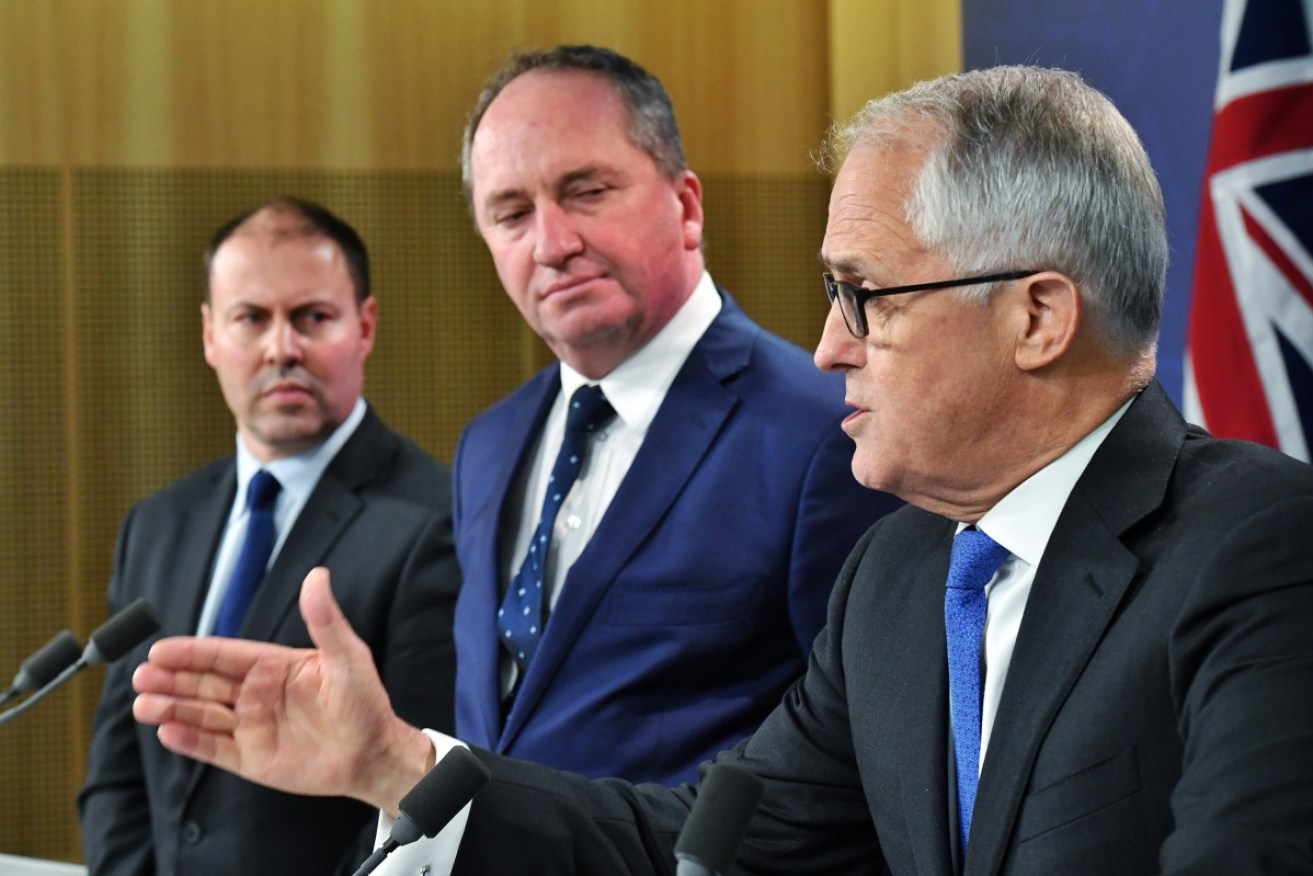The multi-million-dollar risk lurking behind Turnbull’s gas deal


Malcolm Turnbull, Barnaby Joyce and Josh Frydenberg.
Australia’s gas producers are pushing the government to guarantee the purchase of gas in the domestic market, in a proposal that could cost taxpayers tens of millions of dollars.
On Wednesday, Prime Minister Malcolm Turnbull revealed he had cut a deal with Australia’s three biggest gas producers – Origin, Santos and Shell – that would solve the looming gas shortage threatening the east coast.
But the PM gave very few details of the deal, most notably failing to disclose what, if anything, the government had agreed to do for the gas companies in return.
But The New Daily understands that, during the meeting, the gas companies pushed for the government to set up an intermediary body that would purchase the necessary gas from producers, and sell that gas on to the domestic market itself.
Such a move would protect gas producers from the risk that they would redirect gas to the Australian market only to find demand far below projections.
In other words, it would protect gas producers from losing money.
But it would force the government to take on the substantial financial risk that demand for gas is not as high as expected – a risk that, according to one expert, could potentially cost the government $40 to $50 million.
Earlier this week, the Australian Competition and Consumer Commission released a report warning the gas shortfall for Australia’s east coast could fall somewhere between 54 and 107 petajoules.
That’s a margin of error of 53 petajoules.
Following Wednesday’s meeting, Mr Turnbull said gas producers had agreed to supply the base amount of 54 petajoules to the market, and have more ready if needed.
Under current Australian prices ($9 per gigajoule), 54 petajoules of natural gas is worth around $486 million, though the price is constantly changing. The upper limit of 107 petajoules would be close to $1 billion.
If a government-backed intermediary bought this and then, for some reason, demand significantly fell off, it would have to offload vast quantities of gas, most likely for much less than it bought it for.
Tony Wood, energy program director at the Grattan Institute, said it was unlikely Mr Turnbull would agree to something like that because it would require the government to become a gas trader – a prospect he described as “crazy”.
He said a more likely scenario was that the government would guarantee the producers would get a certain price – say, $10 per gigajoule – for a set amount of gas, say, the full 107 petajoules.
If the majority of this gas went for the decided price, but a minority – say, a fifth – went for $8, it would cost the government $40 million.
A bigger fall in prices would cost the government more. If the full amount were sold for $10, it would cost the government nothing.
“This is really a game of swerve,” Mr Wood said. “The government can claim that they have the export control mechanism in their arsenal. The companies have come to the table with the gas, but they might say ‘okay, but you can’t force us to lose money’.
“Clearly it’s in the interest of the government to do a deal because they don’t want the lights to go out, and it’s in the interest of the companies to do a deal because they don’t want export controls.”
He said when faced with the choice of risking tens of millions of dollars or mass business closures and blackouts, “security of supply and keeping the lights on is always going to be the priority”.
The New Daily asked both Mr Turnbull’s office and Environment and Energy Minister Josh Frydenberg’s office to comment. Both declined.








